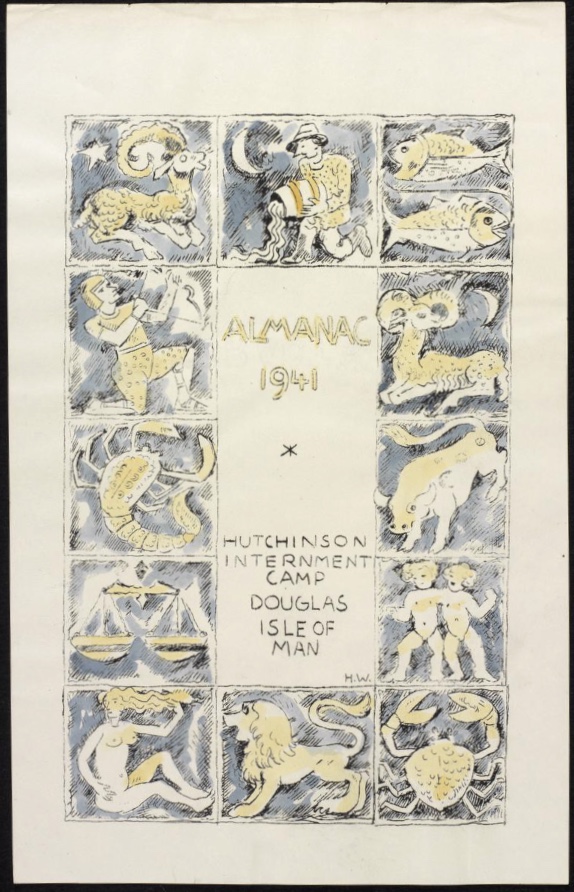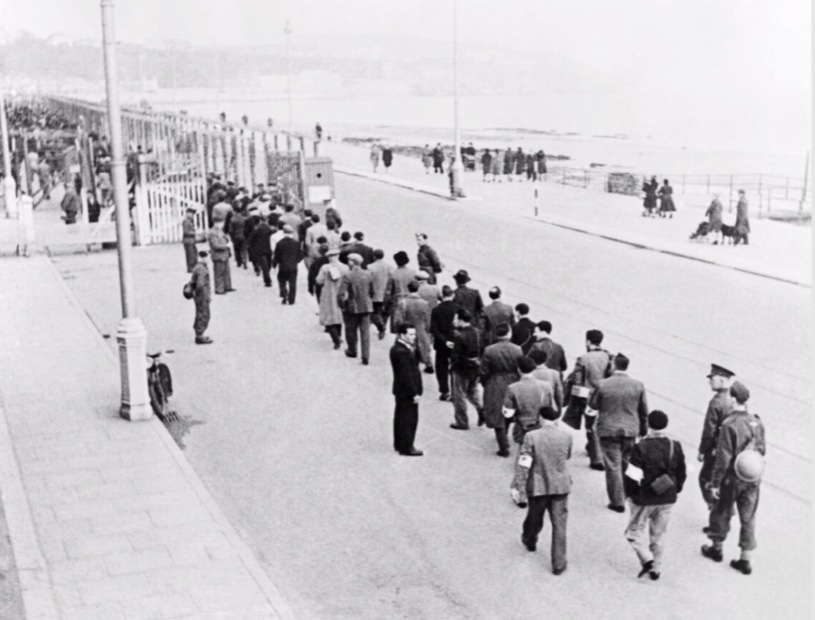
Photograph reproduced here with the kind permission of the Imperial War Museum
Wartime experiences of Jewish refugees in Great Britain: The internment of ‘enemy aliens’ during the Second World War
Tickets for this talk at the link below – all welcome!
With the outbreak of war in 1939, all Germans and Austrians resident in Great Britain became ‘enemy aliens’. Initially reluctant to intern these individuals, the British government instituted a series of tribunals in order to ascertain which enemy aliens were truly ‘dangerous’, and which of them were genuine refugees.
With the swift fall of France and the Low Countries in May 1940, public hysteria led to calls for mass internment in case there was secretly a ‘Fifth Column’ of foreign spies and saboteurs. The vast majority of those interned in Great Britain during the Second World War were refugees who had fled religious or political persecution before the war.
Arrested by the police, sent to hastily constructed transit camps at racecourses, unfinished housing estates, or in one case an abandoned factory, and then moved to the Isle of Man, Australia, or Canada, internment was a traumatic experience for those involved. Additionally, those who wanted to fight against Nazism were initially denied this opportunity, leading to much frustration, as well as unnecessary hardships caused to individuals and families already suffering displacement because of Nazism.
Almost as soon as the policy of mass internment was instituted, it was decided to reverse the policy because of the numbers of refugees involved. Campaigns by refugee charities, prominent MPs, and public discovery of the most controversial aspect of internment – transport abroad – led to the start of the release process. Release was often slowed down due to bureaucracy and was significantly more challenging for those internees who had been deported to Canada and Australia.
Despite all these trials and tribulations, the internees made the most of their situations and created thriving environments despite their lack of resources.
This talk will explain the policy of Second World War internment in Britain, life in the camps, and the experiences and memories of former internees.
A talk for the Kitchener camp series by Rachel Pistol at the Wiener library on Wed, 20 March 2019, from 6pm
………………………..
Family research on internment
http://www.nationalarchives.gov.uk/help-with-your-research/research-guides/internees/
https://blog.nationalarchives.gov.uk/blog/collar-lot-britains-policy-internment-second-world-war/
https://www.bbc.co.uk/history/ww2peopleswar/timeline/factfiles/nonflash/a6651858.shtml
https://www.bbc.co.uk/history/ww2peopleswar/stories/11/a3332611.shtml

https://www.theguardian.com/news/datablog/2010/nov/08/prisoner-of-war-camps-uk#data
https://www.bnaibrith.org/past-magazine-articles/imprisoned-on-the-isle-of-man-jewish-refugees-classified-as-enemy-aliens

Photograph reproduced here with the kind permission of the Imperial War Museum
